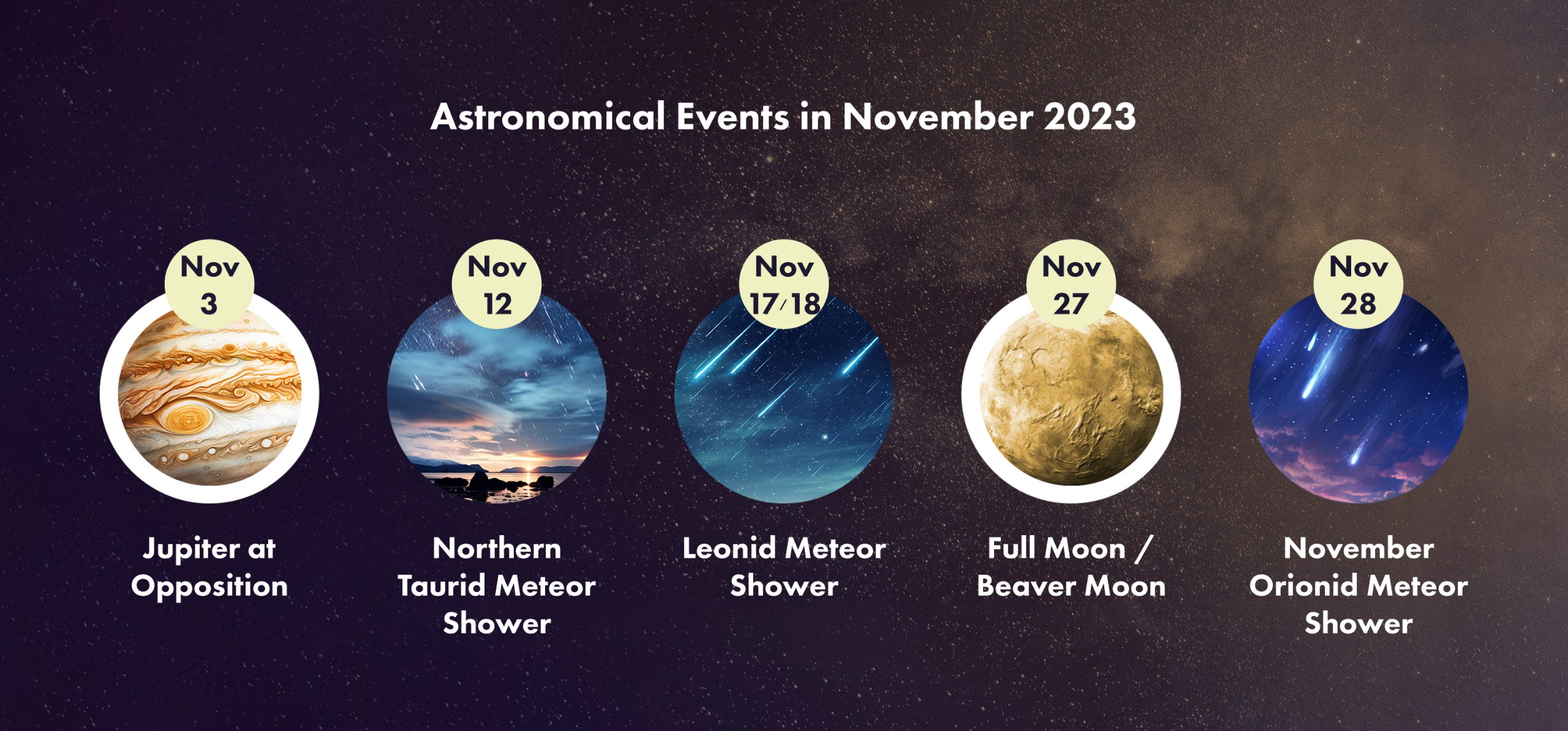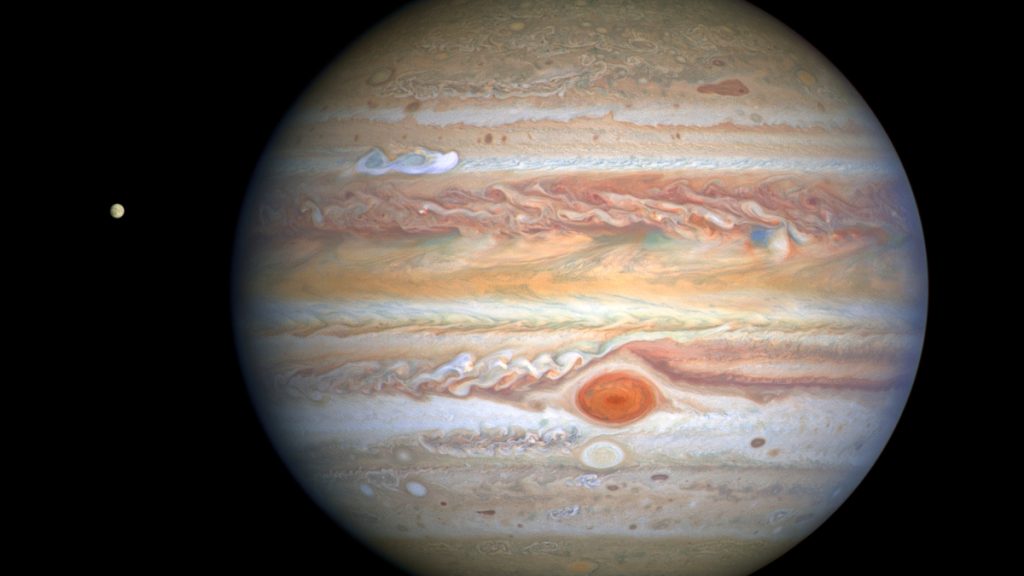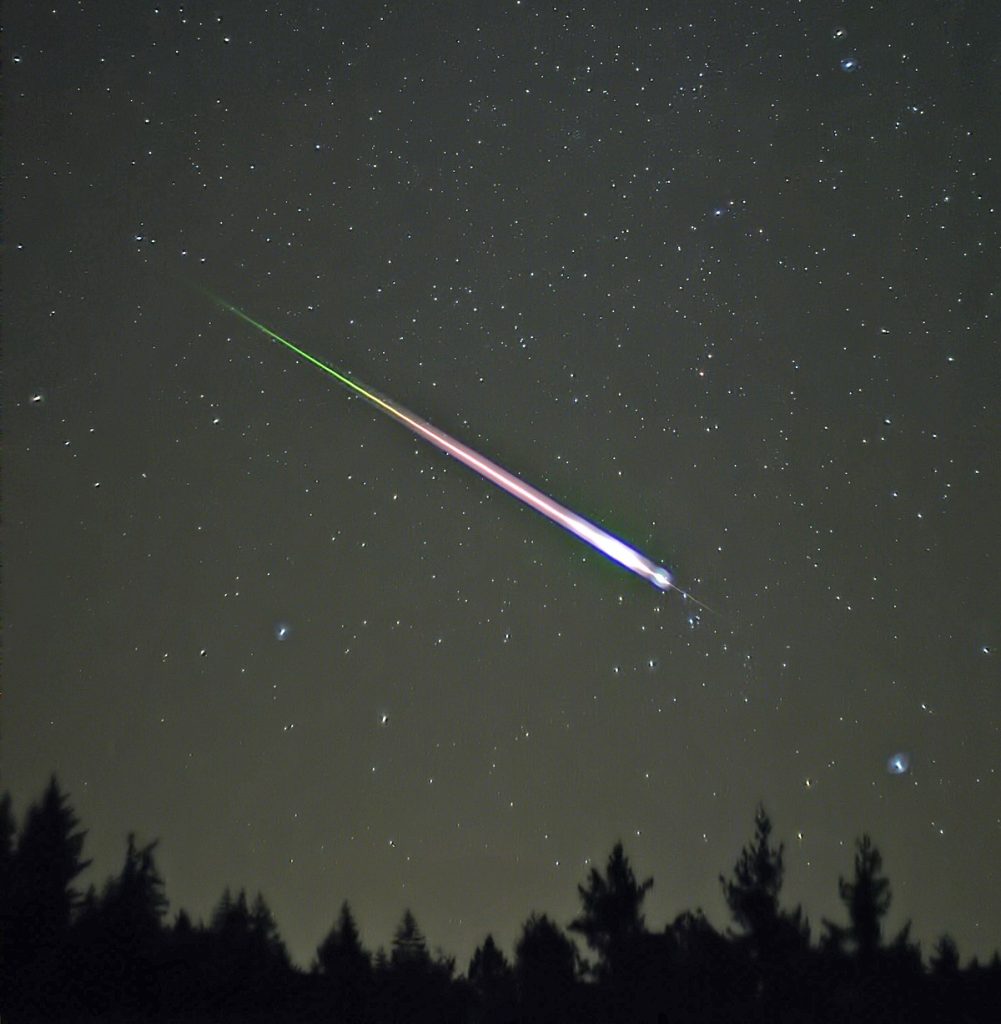Astronomical Events in November 2023: Your Stargazing Calendar for This Month
30th Oct 2023
November 2023 brings a celestial feast for astronomy enthusiasts in the United Kingdom. The night sky will be ablaze with fascinating astronomical events, from meteor showers to wandering planets. This guide will take you through the most marvelous astronomical events in November that can be seen in the UK.
Jupiter at Opposition – 3rd November

Opposition occurs when Earth lies directly between a planet and the Sun. On 3rd November, Jupiter, the largest planet in our solar system, will be in opposition, making it visible throughout the night. At around the same time that Jupiter passes opposition, it also makes its closest approach to the Earth – termed its perigee – making it appear at its brightest and largest.
Northern Taurid Meteor Shower – 12th November
Meteor showers arise when the Earth passes through streams of debris left behind in the wake of comets and asteroids. Over time, the pieces of grit-like debris in these streams distribute themselves along the length of the parent object’s orbit around the solar system.
The Northern Taurids meteor shower will grace the sky on 12th November. At its peak, the shower is expected to produce a nominal rate of around 5 meteors per hour.
Leonid Meteor Shower – 17th/18th November

Between November 6 and 30, the Leonid Meteor Shower will display a dazzling shooting star display. The peak activity is expected on the night of November 17 and the early morning of November 18, with up to 15 meteors per hour.
Full Moon / Beaver Moon – 27th November

On 27th November, the Full Moon, known as the Beaver Moon, will illuminate the night sky. This traditional name comes from the time of the year when beavers are actively building their dams. At this date, the moon will reach the full phase. It will be visible for much of the night, rising at around dusk and setting at around dawn.
November Orionid Meteor Shower – 28th November
The November Orionid meteor shower is one of the most wonderful astronomical events in November. It will be active from 13th November to 6th December, with the peak rate of meteors expected around 28th November. At its peak, the shower is expected to produce a nominal rate of around 3 meteors per hour.
For optimal stargazing in November, it is recommended to find a location away from city lights and allow your eyes to adjust to the darkness. Enjoy the celestial show!






Thank you for your comment! It will be visible on the site after moderation.